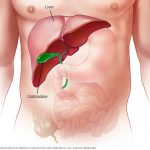What Causes Kawasaki Disease?
Although KD was discovered in the late 1960s, the cause for the illness has yet to be determined. Most experts do believe that viral or bacterial infections are to blame, but there is also a hereditary tendency. This may explain why children with Asian ancestry tend to be at a greater risk of developing Kawasaki disease than those of another ethnicity. However, any race or ethnicity can develop KD.

Additionally, siblings of a KD patient have a greater risk—around 10-fold—of developing Kawasaki disease. This also hints to a shared genetic tendency. Furthermore, when children who had KD become adults and have their own children, that child has a very high risk of getting Kawasaki syndrome, too. Children under 5 years of age are at the greatest risk.
More from Things Health
-
Understanding Crohn's Disease
Crohn's Disease is an Inflammatory Bowel Disease commonly referred to as IBD. Inflammatory Bowel Disease consists of several disorders, the primary two are Crohn's Disease…
-
Lyme Disease Symptoms
Experts are suggesting that 2017 will be a bad year for ticks. Lyme disorder is propagated by deer ticks and is the result of a…
-
Celiac Disease Diet: 9 Gluten-Free Grains to Try
In recent years, everything from bagels to haircuts have been advertised as being “gluten free.” When the trend first started, many joked about the fact…
-
Fatty Liver Disease
Non-alcoholic fatty liver disease is among the most typical causes of chronic liver disease. Studies suggest that though simple fatty liver is a condition benign,…
-
5 Warning Signs of Inflammatory Disease
Inflammation is an incredible bodily process. It helps to defend us against bacterial infections, viruses and other intruders. The acquired immune system develops to understand…






